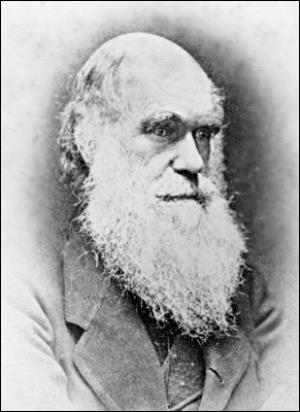
5 Common Misconceptions about Darwin
Considered the original developer of the Theory of Evolution through Natural Selection. Much is known about Charles Darwin’s life and work, and a lot more is assumed by people who have not studied him in any way beyond superficially knowing “he came up with the idea of evolution”. These assumptions about Charles Darwin are mostly inaccurate at best and a downright fabrication at worst. Here are five common misconceptions about the man who gets credit for “discovering” evolution.


Charles Darwin.
1. Charles Darwin was the first to “discover” evolution.
This is just simply untrue all the way around. There are many scientists who came before Darwin that came up with the idea of species changing over time. Even ancient philosophers came up with stories and ideas that would be considered the basis of evolution. So why does it Darwin get credit for coming up with the theory of evolution? He was the first to publish not only the theory, but evidence and a mechanism (natural selection) for how evolution happens. It should be noted that Darwin’s original publication about natural selection and evolution was actually a joint paper with Alfred Russel Wallace, but after conversing with geologist Charles Lyell, Darwin quickly went behind Wallace is back to write an abstract and publish is arguably most famous work on the origins of species.
2. Darwin’s Theory was immediately accepted.
Charles Darwin’s data and writings were shared in 1858 at the Linmaean Society of London’s annual meeting. It was actually Charles Lyell who assembled Darwin’s work with Alfred Russel Wallace is published data and got it on the agenda for the meeting. The idea of evolution through natural selection was greeted with a lukewarm reception at best. Darwin had not wanted to publish his work yet, as he was still putting together the pieces to make a compelling argument. A year later, he published (On the Origin of Species). The book, which was billed with evidence and postulating about how species change over time, was accepted more widely than the original publishing of the ideas. However, he still met some resistance and would go on to edit the book and add more evidence and ideas several times until he died in 1882.
3. Charles Darwin was an atheist.
Contrary to popular belief, Charles Darwin was not an atheist. In fact, at one point, he was studying to become a clergyman. His wife, Emma Wedgwood Darwin, was a devout Christian and was very involved with the church of England. Darwin’s findings did change his faith over the years, however, in letters written by Darwin, he would describe himself as a “agnostic” near the end of his life. Much of this change in faith was actually rooted in the long, painful illness and death of his daughter, not necessarily his work with evolution. He did believe that religion or faith was an important part of human existence, and never ridiculed or begrudged anyone who wanted to believe. He often was quoted as saying there was a possibility of some sort of higher power, but he no longer followed Christianity and it pained him that he could not believe in his favorite books in the Bible … The Gospels. The liberal Unitarian Church actually embraced Darwin and his ideas with praise and began incorporating the ideas of evolution into their belief system.
4. Darwin explained the origin of all life.
This misconception about Charles Darwin seems to come from the title of his arguably most famous book (On the Origins of Species). Even though that title would seem to point to explanation of how life started, that is not the case. Darwin does not give any thoughts on how life started on earth, as that was beyond the scope of his data. Instead, the book lays out the idea of how species change over time through natural selection. While it does hypothesize that all life is related somehow to common ancestor, Darwin does not try to explain how that common ancestor came into being. Darwin’s theory of evolution was based on what modern scientists would consider macroevolution in biological diversity, than microevolution in the building blocks of life.
5. Charles Darwin said humans evolved from monkeys.
It was a struggle for Darwin to decide whether or not to include his thoughts on human evolution in his publications. He knew they would be controversial and while he had some superficial evidence and a great deal of intuition about the subject, he had first shied away from explaining how humans had evolved. Eventually, he did write the decent of man and explained his hypothesis of how humans involved. However, he never said that humans evolved from monkeys and this statement shows an overall misunderstanding of the concept of evolution. Humans are related to primates, like apes, on the tree of life. Humans are not direct descendants of apes or monkeys, however, and belong to a different branch of the family tree. It would be more accurate to say that humans and apes are cousins to put it in familiar terms.
Researched and Produced by,
Don L. Johnson
